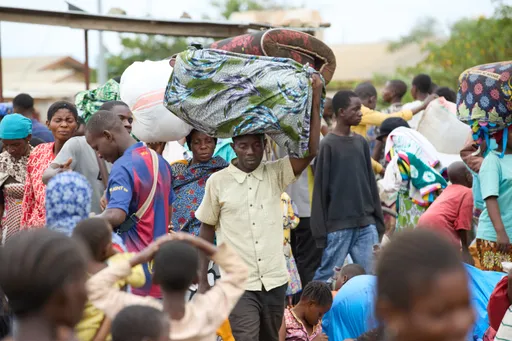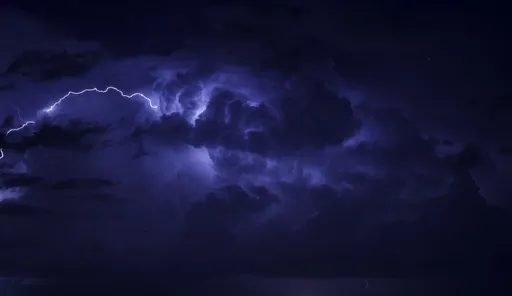By Sylvia Chebet
One of the harrowing realities of life in the Democratic Republic of Congo (DRC) as a displaced woman or girl is the often-unacknowledged threat of sexual assault.
As militant-orchestrated violence continues to cleave through the country's troubled eastern region, millions of Congolese have trooped to makeshift camps in Goma and Kivu, only to realise there is no haven.
"Thousands live in shelters covered in plastic sheets. These structures don't have proper doors, which means women and children living alone are always vulnerable to intrusions. The level of insecurity is deplorable," Christopher Mambula, head of programmes at Médecins Sans Frontières (MSF) in the DRC, tells TRT Afrika.
MSF has published new data showing that its teams, alongside DRC's ministry of Health, treated more than two victims and survivors of sexual violence every hour across the country in 2023.
The report, titled "We are calling for help", is based on data from 17 projects set up by the humanitarian organisation and the Ministry of Health in five Congolese provinces – North Kivu, South Kivu, Ituri, Maniema and Central Kasai.
MSF says the figure for the year — 25,166 – is by far the highest it has ever recorded. In the previous three years, MSF teams treated an average of 10,000 victims and survivors of sexual violence in the country.
According to the latest report, 91% of those who suffered sexual violence were treated at campsites around Goma, North Kivu's capital.
Clashes between the M23 outfit, the Congolese army and their respective allies have been raging in the province since late 2021, forcing hundreds of thousands of people to flee their homes and be distanced from their communities.
Consequently, displacement sites grew throughout 2023, worsening the security situation.
While MSF recorded a massive increase in admissions in 2023, the trend accelerated in the first few months of the year.
In North Kivu alone, 69% of the total victims treated in 2023 across the five troubled provinces were between January and May.
"Based on the testimonies of patients, two-thirds of them were attacked at gunpoint," says Mambula.
"These attacks took place at the sites and the surrounding areas when women and girls – who account for 98 % of the victims treated by MSF in DRC in 2023 – went out to collect wood or water or to work in the fields."
Resource crunch
While the massive presence of armed men in and around displacement sites explains this explosion in sexual violence, MSF notes that the inadequacy of the humanitarian response and poor living conditions in the camps fuel the problem.
Shortage of food, water and income-generating activities exacerbates the vulnerability of women and girls forced to work or scavenge in the neighbouring hills and fields, risking assault by armed men.
One in 10 victims treated by MSF last year were minors.
The organisation points out that lack of sanitation is another factor.
"On paper, there seem to be many programmes to prevent and respond to the needs of victims of sexual violence," Mambula tells TRT Afrika.
"But at the campsites, our teams struggle every day to refer victims who need help. The few programmes implemented are for a short duration and grossly under-resourced."
Call to action
MSF's report states that sexual violence is a major medical and humanitarian emergency in the DRC that requires a concerted response.
Based on the needs expressed by the victims, the report lists some 20 urgent actions to be taken by parties to the conflict, including the Congolese authorities – national, provincial, and local – along with international donors and humanitarian agencies.
MSF urges those involved in the conflict to ensure respect for international humanitarian law, including the absolute prohibition of acts of sexual violence.
"The protection of people caught up in the fighting must be a priority," the report states.
The humanitarian organisation calls for improving living conditions at campsites for internally displaced people.
MSF further calls for specific investment in better medical, social, legal and psychological care for victims of sexual violence.
This requires long-term funding to improve medical training, the supply of kits to care facilities, legal support, and special shelters for survivors.
Funding is also required for awareness-raising activities to prevent stigmatisation or marginalisation of victims, which sometimes prevents them from seeking help.
➤Click here to follow our WhatsApp channel for more stories.
























